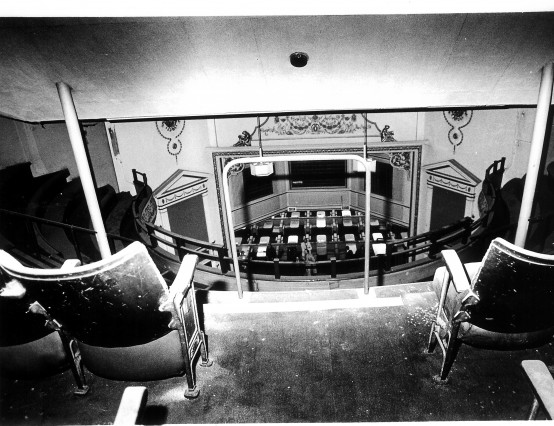Centre stage a tall, strong tree erupts through the ground, uprooting the man made paving slabs beneath. This monument perfectly symbolises the groundbreaking work of Sampat Pal, leader of India's Gulabi Gang, consequently where the story begins.
Based on the critically acclaimed book by Amana Fontanella-Khan, Pink Sari Revolution highlights Sampat Pal's (Syreeta Kumar) motivations for creating the Gulabi Gang, one of the world's most notorious feminist movements. As well as documenting Sampat Pal's triumphs in galvanising women to stand up against abusive male presences, the play also debates the complexities of Sampat's relationship with her own family. Syreeta Kumar's impulsive and impassioned Sampat Pal is a performance of great shades; her lighter moments of comedy are harnessed energetically, as Kumar negotiates comic timing with a thick accent, and her darker tones shake with truth and passion.
However Kumar's performance is often underserved by the bare production quality as the music is used sparingly and to little effect despite being commissioned by an accomplished composer (Naren Chandavarkar) whilst the powerful movement sequences were few and far between. Previously the subject of a documentary, there is enough material here to qualify for a factual drama, however when migrating to the boards, the production does not make use of the resources available. With a fight director and composer at hand, it seems the creative team dismiss these elements to focus on an already powerful story. It simply requires a further layering of theatrical elements to justify its movement from page to stage.
Contrastingly, the dialogue held a stronger nerve; Purva Naresh's naturalistic script effectively emphasises the humanity behind this large scale movement. Ulrika Krishnamurti multi-rolling as Rani, Champa and principally as the seriously abused Sheelu, was at the heart of Naresh's unstable structure, sensitively reflecting the tortured minds of victims of domestic and sexual violence in Uttar Pradesh, India, where women are trapped between the patriarchy and their own bodies.
Director Suba Das skillfully navigates the various narratives occupying Indian culture. As the Gulabi Gang's message of, "pick up your stick, put down your shame" rings clear, a feeling of guilt plagues the minds of normal working women, compliant within the unequal system. Notably this is demonstrated through a conversation between Dr Bhavna Sharma (Goldy Notay) and Constable Shanti (Gurkiran Kaur). Both are women with the same working rights as men, but face an internal conflict as they are ultimately aiding the abuse of mistreated women within their job roles. This successfully debates the plight of Indian society, as the silence of privileged voices arguably perpetuates the struggle of many.
Markedly whilst not a full house, the title of this piece did manage to draw a more diverse crowd than is typically seen in theatres, but is very much desired. The appetite for more diverse content in British playhouses is clearly proven within this space, and in that respect, the production has already hurdled barriers.
Whilst the creative team is underserved, Sampat Pal's story is a valuable one, portrayed stirringly by a believable cast - but perhaps read the book first.
Image by Pamela Raith
Tour dates:
Curve, Leicester 27 Sep – 7 Oct
Belgrade Theatre, Coventry – 11 – 21 Oct
Northern Stage, Newcastle – 31 Oct – 04 Nov
West Yorkshire Playhouse, Leeds – 7 – 11 Nov










I suppose not every theatre production gets it right...